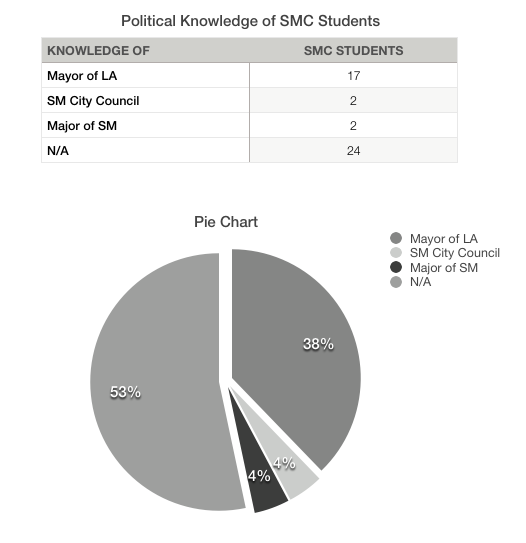The Uninformed Generation
As a 21-year-old freelance journalist, I mostly cover local political developments. Whether I am attending the latest meeting of the Santa Monica City Council, or covering our very own Associated Student board, I am frequently struck both by how important the issues that appear in front of these bodies are, and by the alarming lack of public participation and oversight present at their deliberations. These bodies pass ordinances and approve spending that directly impacts the lives of their constituencies, and yet when members of the public are given a chance to speak, they rarely take that opportunity. Invariably, when someone does decide to take it upon themselves to address a governing body, that person is often older than 30.
Protests such as the recent March for our Lives demonstrate that younger millennials are positively engaged in public discourse, so why don't today's politically active youth take that activist spirit to local government, where, due to its more responsive nature, their voice has a much larger impact? As I attempted to talk with people in my age group about this issue, I believe I chanced upon the answer: they are simply ignorant of the role that local government plays, and the impact that it has.
Setting out to prove my theory, I conducted an informal survey of students here at SMC. I posed a series of questions to 45 students who said they lived in Santa Monica, questions like: Who is the Mayor of Los Angeles? Do you know your representative in the California State Assembly? Can you name a member of the SMC Board of Trustees?
The results were not inspiring.
Of 45 students, only 17 knew that Eric Garcetti was the mayor of Los Angeles, only two could name a Santa Monica City Council member, and just a single student could name a recent ordinance passed by either the Santa Monica or Los Angeles City Council. No students were capable of naming a member of the SMC board of trustees, or answering any of my other questions.
After quizzing them on their knowledge of local government, I asked participants whether they felt like they should know more. To my surprise, the response was mostly apathetic. One student, a communications major who wished to remain anonymous, said, "I think just that there's bigger issues going on right now - I don't really think [this] local stuff has too much impact on my life."
The prevailing attitude towards local government from the majority of students I spoke to was apathy and disinterest, though when I spoke to them about some of the responsibilities and powers of said government, they agreed that they were important. One such issue important to many SMC students, that is controlled by the City of Los Angeles, is rent control. A history major who also did not wish to be named told me, "If you're saying the city [handles] rent control, I didn't know we even had rent control here - I'll definitely look more into this because I feel like people really need [rent control]."
After I made that student aware of the practical impact of other responsibilities of city councils, such as building codes and zoning, he said that he would make an effort to stay more informed regarding their activities. If the students I spoke to are representative of their age group, the implications are both negative, and positive. Negative because they are very ignorant of their local representatives, but positive because they are willing to learn once they learn how important their local governments are.

